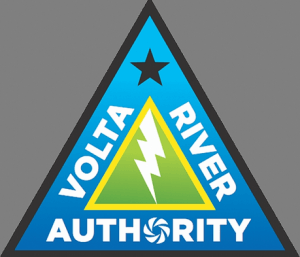VRA to mobilise communities to manually remove aquatic weeds
 The Volta River Authority (VRA) has identified 50 communities in the Lower Volta Area to be mobilised and provided with tools to manually remove aquatic weeds in the Volta River.
The Volta River Authority (VRA) has identified 50 communities in the Lower Volta Area to be mobilised and provided with tools to manually remove aquatic weeds in the Volta River.
Energy Minister Matthew Opoku Prempeh in an answer to Parliament by his Deputy, Mr William Owuraku Aidoo, said the exercise would be undertaken by the close of the year.
Currently, the VRA is adopting measures immediate, short to medium and long term to address aquatic weed infestation challenges.
“This strategic approach is to ensure that the impact on the riverine communities is immediately contained while medium to long term sustainable management programme is put in place to ensure both environmental and financial sustainability,” the Minister explained.
He said the manual removal of the aquatic weeds was part of the immediate term plan, under which the VRA is to undertake a project called “Community Directed Shoreline and Immediate Offshore Aquatic Weed Removal.
The Minister’s announcement was in response to a question by Mr Kobena Mensah Woyome, MP for South Tongu, about what steps the Ministry of Energy was taking to get aquatic weeds removed from the Lower Volta Basin.
Mr Woyome also wanted to know what steps were being taken to remove aquatic weeds in all tributaries of the Volta River within the South Tongu and Dangbe East Districts.
Despite ”water being life”, and being life’s most precious resources, there is increasing scarcity of clean fresh water through population growth and development, droughts, contamination, and other factors, placing greater demands on the very foundation of society.
Also, invasive plants and algae are progressively disrupting the ecological balance required for maintaining adequate fresh water resources for flora, fauna, and humans.
These macrophytes, generally, have negative impacts on tourism and recreation.
Answering the question, Dr Prempeh said the purpose of the initiative was to enhance access to the extraction of water clogged by aquatic weeds by the inhabitants for domestic use, remove all weeds obstructing boat landing sites as well as destroying the habitats of snails, which host bilharzia.
The Minister indicated that River Angor, which is a major tributary of the Volta River in the South Tongu and Dangbe East Districts, was heavily infested with weeds, but the VRA would deploy its Weed Harvester to the Angor by the close of September 2021.
“It is expected that the Angor and other critically weed-infested tributaries of the Volta by the close of the year,” the Minister said.
Under the short term to medium plan, Dr Prempeh announced that the VRA intends to deploy drone technology to enhance routine environmental surveys, mapping, monitoring and protection activities mainly along the Volta Lake.
He said one of the key activities under the drone technology services was to determine aquatic weeds coverage and types of invasive aquatic weeds within the Volta Lake and its tributaries, the Kpong Headpond as well as the Lowe Volta area, and to advise on changes in coverage.
The Energy Minister said the procurement process was completed and the contract would be signed by the end of July 2021 for the services to commence.
The contract duration, the Minister said was three years.
Under the long term plan, the Minister said the VRA introduced the “Lower Volta Dredging and Aquatic Weed Harvesting Project” in 2014 as a new management strategy to help resolve resource challenges, which over the years have reinforced the need for the involvement of other stakeholders in the aquatic weed management undertaken solely by the VRA within the Lower Volta Area.
Procurement processes for the project, to be implemented under a Public-Private Partnership, was completed with the selection of Lower Volta Dredging Contractors Limited for aquatic weed harvesting services from the Kpong Head Pond down to the Ada estuary.
The Energy Minister announced that the project was to commence in 2020 but was hindered by the COVID-19 global pandemic.
The VRA, the Minister said, expected that the initiation phase of the project would be completed to enable the project to commence by the close of 2021.
Source: GNA
